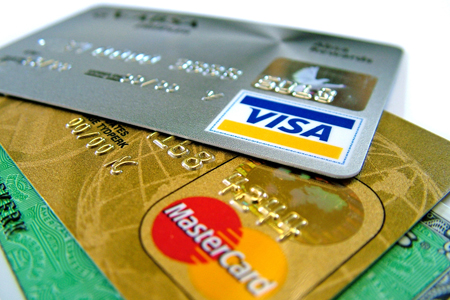
Maintaining great credit is a key to financial freedom. Many of us become entrenched in credit card debt because we do not stay ahead of the curve by maintaining responsible habits.
Here are some habit to form now that will lead to a successful future.
# 1 Carry cash or use debit card for small purchases
The Dodd-Frank Wall Street Reform and Consumer Protection Act allows retailers and other merchants to set a minimum purchase amount for credit card transactions. “The minimum purchase amount must not exceed $10 and does not apply to transactions made with a debit card,” Visa explains on its website. In the past, some merchants imposed credit card minimums on customers, but did so in violation of card network rules. Vendors can now set a $10 credit card minimum without fear of penalty. Avoid this potential restriction by always carrying at least $10 or a debit card in your wallet. Under 21? Know the new rules for getting a credit card
# 2 Under the Credit Card Accountability, Responsibility and Disclosure Act of 2009, or Credit CARD Act
If you’re under 21 years of age, you must have either sufficient income or assets, or a co-signer to get a credit card. Issuers aren’t required to offer a co-signer option, however. Bankrate.com surveyed some of the major card issuers recently and found that some don’t permit co-signing. Before submitting an application, check with the card issuer to find out what the policy and procedure is regarding applicants under the age of 21.
#3 Save the credit card agreement summary
In addition to the credit card agreement itself, new cardholders must receive a one-page agreement summary, as required by Federal Reserve regulations that took effect July 2010. This summary should highlight the key terms of your contract. File it away for future reference. Watch for changes to existing accounts
#4 Keep Aware
Under the CARD Act, issuers must provide notice of certain changes to accounts 45 days before they take effect. For instance, issuers must give 45 days’ advance notice before increasing the required minimum payment. The law doesn’t require advance notice of all changes, however. Changes that don’t have to be announced ahead of time include credit limit reductions and account closures. Certain changes you can opt out of, such as increases to fees that were disclosed in the account-opening table. To allow for response time to an undesired change, open mail from card issuers immediately.
#5 Use credit cards you don’t want to lose
Though the Credit CARD Act banned issuers from charging inactivity fees, nothing prevents an issuer from shutting down an unprofitable account or reducing the credit limit. As our 2010 study of credit card fees shows, a number of card issuers close accounts if they go unused for too long.While there are no guaranteed ways of preventing an unwanted shutdown, it’s smart to regularly use credit cards you want to keep. Pay in full to stay out of debt.
#6 Watch for your free credit score if rejected for a credit card or loan
Thanks to a provision in the Dodd-Frank Act, you will soon have the right to see your credit score — for free – if the lender or company has rejected your application or approved you for a higher rate because of your credit report or score. The creditor must send an adverse action notice containing the score used against the consumer, which means that you might even see a credit score not sold to consumers, such as FICO 8 scores.As of Jan. 1, 2011, access to free credit scores may broaden. New risk-based pricing rules take effect that require creditors to inform applicants in certain cases that they didn’t qualify for the best terms. An exception to that requirement is if the creditor provides a free credit score disclosure to anyone who applies. In other words, if the lender opts to provide free credit scores to all applicants instead of just to applicants who receive bad news, you may get a free credit score just for trying to open an account.
#7 Make use of credit freebies
You don’t have to rely on regulations to obtain a free credit score. The Bankrate sory, “How to get a free credit score,” shows you five websites, including Equifax.com, through which you can order a free score that isn’t attached to a fee-based credit monitoring service. While the score or score range delivered is not an actual FICO score, the score most commonly used by lenders, you will get a sense of whether you have “good” credit. Remember to check your credit report as well, since your credit score is based on it. You have the right to request a free copy of your credit report from each of the three major credit reporting agencies once every 12 months under federal law. You can order your free credit reports all at once or throughout the year. Be sure to visit AnnualCreditReport.com, the centralized source for free annual credit reports under the Fair and Accurate Credit Transactions Act, and not a for-profit website that charges monthly fees after a trial period. Once you receive your report, examine it carefully and dispute any inaccuracies.
#8 Maintain a high credit score
Because of the tight lending environment, it’s more important than ever to have a good credit score to obtain loans and credit cards at attractive terms. Even if you aren’t applying for new credit, maintaining a good credit score can help you avoid paying more to rent an apartment, hook up utilities or get a new mobile phone. Use your credit cards wisely to keep your credit score high. Pay on time, keep balances low even if you pay in full every month and apply for new cards only when necessary. For additional tips, check out the Credit Card Adviser column.